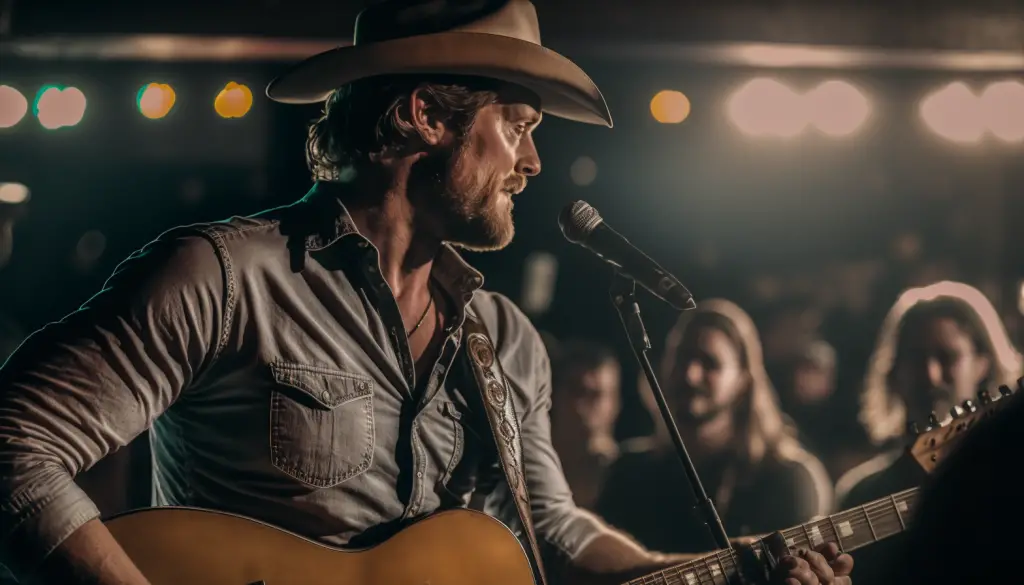The Importance of Engaging Stage Presence for New Musicians and Bands
An engaging stage presence can make or break a new musician or band. It’s the difference between a forgettable performance and one that leaves a lasting impact on the audience. In this article, we’ll explore why stage presence is crucial for new musicians and how it can help them connect with their audience, build their brand, and establish themselves in the music industry.
First and foremost, stage presence is about connecting with the audience. A performer’s energy and enthusiasm can transfer to the crowd, creating an atmosphere that makes everyone feel like they’re part of something special. When a performer connects with their audience, they’re more likely to keep their attention and leave a lasting impression.
Stage presence is also about conveying the performer’s personality and brand. A musician or band’s stage presence should reflect their music, image, and overall persona. By presenting themselves authentically on stage, they can reinforce their brand and build a strong identity in the minds of their fans.

Another important aspect of stage presence is confidence. A performer who exudes confidence on stage is more likely to connect with their audience and command their attention. Confidence comes from being prepared and having a clear understanding of one’s strengths and weaknesses as a performer.
However, it’s important to strike a balance between confidence and humility. Being too confident can come across as arrogant, while being too humble can make a performer seem unsure of themselves. The key is to find a balance that allows the performer to connect with their audience while still showcasing their talent and personality.
A performer’s body language and movement are also important elements of their stage presence. How they move and interact with the crowd can either enhance or detract from their performance. For example, engaging in energetic and dynamic movements can help keep the audience’s attention, while standing still or appearing stiff can make the performance seem flat and uninteresting.
Another crucial element of stage presence is eye contact. Making eye contact with the audience creates a connection and makes them feel like the performer is speaking directly to them. This can be particularly effective during intimate or emotional moments in a performance.

The use of props and stage design can also play a role in creating an engaging stage presence. For example, incorporating lighting, special effects, and creative stage design can enhance the overall impact of the performance and keep the audience’s attention.
It’s important for a performer to be able to read and respond to the audience’s energy. Knowing when to ramp up the energy or bring it down can make a performance more dynamic and engaging. A performer who can effectively connect with their audience and respond to their energy is more likely to leave a lasting impression.
An engaging stage presence is crucial for new musicians and bands. By connecting with their audience, building their brand, and showcasing their talent and personality, they can establish themselves in the music industry and leave a lasting impact on their fans. Whether it’s through confident body language, eye contact, stage design, or audience interaction, a captivating stage presence can help set a new performer apart from the rest.
Musician Stage Presence FAQ
- What is a musician’s stage presence? A musician’s stage presence refers to their ability to engage and connect with an audience through their performance, personality, and overall image.
- Why is stage presence important for musicians? Stage presence is important for musicians because it can help them connect with their audience, create a memorable performance, and build their brand and reputation.
- How can a musician improve their stage presence? A musician can improve their stage presence by practicing their performance skills, developing their stage persona, engaging with the audience, and being confident and comfortable on stage.
- What are some tips for developing a strong stage persona? Tips for developing a strong stage persona include finding your unique style and image, being authentic, and incorporating elements that reflect your personality and musical genre.
- How can a musician engage with their audience during a performance? A musician can engage with their audience during a performance by making eye contact, speaking directly to the audience, and encouraging interaction through call and response or crowd participation.
- What are some tips for building confidence on stage? Tips for building confidence on stage include practicing regularly, focusing on the music, visualizing success, and surrounding yourself with positive energy.
- How can a musician create a memorable performance? A musician can create a memorable performance by delivering a strong and engaging performance, incorporating unique elements, and leaving a lasting impression on the audience.
- How can a musician use their body language to enhance their stage presence? A musician can use their body language to enhance their stage presence by incorporating gestures, movement, and facial expressions that complement the music and convey emotions.
- How can a musician use lighting and stage design to enhance their stage presence? A musician can use lighting and stage design to enhance their stage presence by creating an atmosphere that supports the mood and energy of the performance, and highlighting key moments in the performance.
- What are some common mistakes musicians make with their stage presence? Common mistakes musicians make with their stage presence include neglecting to engage with the audience, appearing nervous or uncomfortable, and failing to connect with the music and the performance.